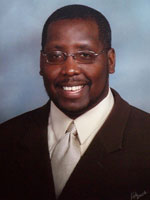Freestyle Blog Archives

CEDRIC C. RUCKER | AMBIGUITY AFTER SPIRITUAL EDUCATION
Life is full of emotional dichotomies. The existential, spiritual, and intellectual tension that is identified with human existence is unquestionable because every person has or will be confronted with the joys and sorrows associated with humanity. It is because of these tensions that psychotherapeutic agencies and practitioners are overburdened by intense caseloads serving individuals who are struggling to make sense of the incongruities that they face. These incongruities consist of, but are not limited to, dilemmas such as unrequited love, unappreciated diligence, and unattained ambitions. Any one of these difficulties can be enough to shake an individual to his or her core.
For centuries, individuals have looked to their spiritual leaders for assistance in the difficult journeys that they experience in their lives. The hope is that the minister's relationship with the sacred will provide the confused individual with illumined insight into their present situation. For this reason, many persons of the cloth prepare themselves by attending seminaries that place specific emphasis on the various aspects of ministry. However, what often happens is that the individuals, who attend seminaries to acquire the skills to help relieve the anxiety of others, are left with questions and concerns of their own that give rise to an unremitting anxiety that will not be allayed by mere religious colloquialisms.
On May 26, 2011, I graduated from Harvard Divinity School. Since that date, I must admit that I have experienced my share of anxiety due to the ambiguity that is directly connected to the mystery that is my future. As I remember the euphoria of my graduation, I am also drawn to reminisce about the day that I was made aware of my acceptance to Harvard. I was rendered speechless. I considered the vast opportunities that would be made available to me after graduating from a university of such distinction. Although I am proud of my achievements, there is a twinge of anxiety associated with the thought of the myriad of "opportunities" that were supposed to be available to me after my seminary education. For at this moment the opportunities that I thought would be so plenteous have yet to come to fruition.
As I entered seminary I was confident that my greater purpose consisted of pastoral ministry. Although the belief has not changed as it pertains to my purpose, what remains unclear is the method in which this purpose of pastoral ministry will be realized. To say that the pastoral pursuit has been slightly disconcerting is an understatement. One of the difficulties stems from the fact the Baptist denomination does not have a hierarchical structure that places individuals in clerical assignments. This is not a negative aspect of the Baptist church. However, at times the lack of a board of religious leaders can make it difficult for ministers looking for placements who may not have a certain level of networking support. Although I am still an adherent to the theological principle that God is in ultimate control, this does not relieve the apprehension. So the final question is what do I do? For this answer I call on the words of Harry Emerson Fosdick:
Many of us are in a low mood, in a depressing year. We have won a war, but what mess! It is foggy weather on a rough sea for all of us who care about the world, and I, for one, need to remember the clear days when I could see better.
Simply put, I do the only thing that I have the power to do. I dare to remember and believe those days that were clearer and I was certain that I heard the voice of God. There are two times in life that I feel myself most purposeful: preaching and counseling. Consequently, I will continue to believe that God has purposed that I do those most.
VIEW COMMENTS | POST COMMENTS
|
|
|
|